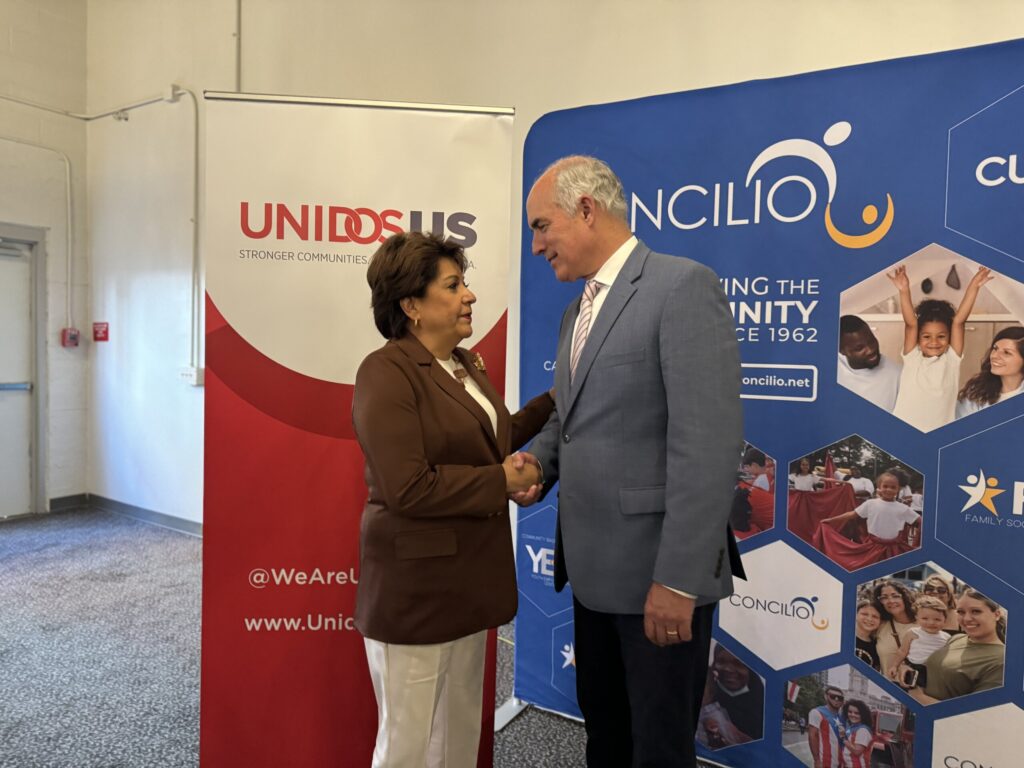(UnidosUS) —
Last month, UnidosUS organized a roundtable discussion focused on its newest economic report, which analyzes the economic status of Latinos from the pandemic to today.
The roundtable was hosted by UnidosUS Affiliate Concilio in Philadelphia and welcomed community leaders, UnidosUS Affiliates and elected as well as state officials, including Senator Bob Casey Jr. The director of the White House Domestic Policy Council also joined the conversation.
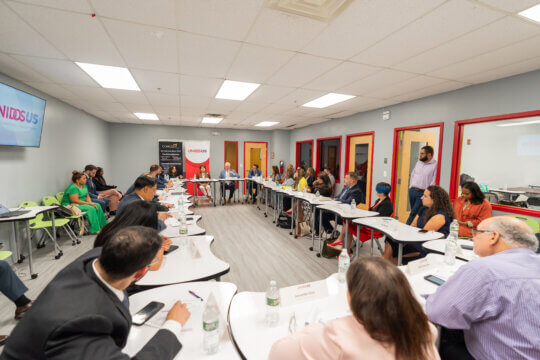
The report, “From the Pandemic to the Present: Forging a Path from Recovery to Prosperity,” showed that Latinos are a critical driver of U.S. economic growth and prosperity with 63 million Latinos collectively contributing $3.2 trillion to our nation’s economy. If Latinos in the U.S. were a country, it would be the fifth largest country in the world. Further almost 80% of all new workers joining the workforce in the next 10 years will be Latino.
The pandemic caused severe economic distress for the Latino community, with the Latino unemployment rate reaching a peak of 18.9% in 2020 and 68% of Latinos reporting concern about being able to pay for basic expenses due to the loss of jobs or income. Pandemic era policies had a significant positive impact on Latinos, including stimulus payments, the child tax credit and enhanced unemployment insurance. In fact, these programs moved 1.3 million Latino children out of poverty, increased Latino real wages by 2.2% and increased Latino wealth by 47% which helped to modestly narrow the racial wealth gap.
Our new economic report tells the story of the positive impact of pandemic era supports, how that impact is felt by Latinos today and what else needs to be done to help Latinos thrive. This includes ensuring all segments of the Latino community are considered, working-class people as well as college educated Latinos, when proposing new policies that will improve financial well-being.
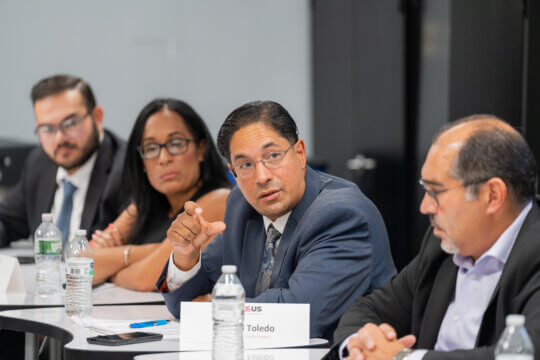
Participants underscored the importance of hearing about the economic contributions of Latinos to the nation and the Pennsylvania economy, elevated the importance of addressing the housing crisis, investing in workforce development, including upskilling and the digital divide and ensuring that we address education related issues for our children. It is critical that we tackle the ongoing housing supply issue, potentially via empowering our Community Development Corporations (CDC) to produce more housing in a way that is sustainable. We also need to invest in preparing the Latino community for jobs, creating a pipeline to ensure they have the skills they need to enter the workforce at any stage of their lives. Micro-skilling and micro-learning are crucial to building our pool of workers, but it requires a layer of multiple investments including language access and cultural competence needs. In addition to preparing the Latino workforce, we need to ensure that they have access to jobs, particularly for those individuals who are credentialed in their homeland but not in the United States (nurses, doctors) etc. Participants also elevated the importance of addressing the digital divide, in particular, highlighting that the administration can and should work with community partners to champion solutions to the divide. As it relates to education, the pandemic caused significant learning loss that we will need to work through to ensure that all children are caught up, placed on a path toward success and college completion.
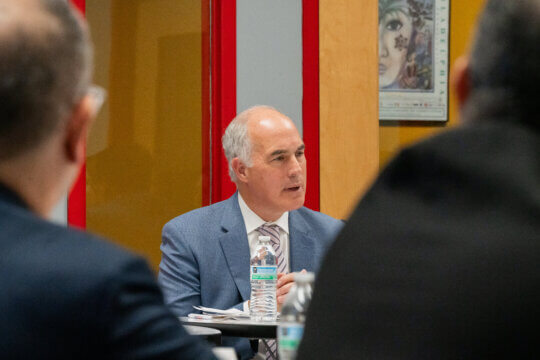
Senator Casey acknowledged the issues that were elevated and highlighted the fact that there is great opportunity to improve the economy of Latinos and address these issues through tax reforms in Congress next year. He noted the potential of securing a more robust Child Tax Credit, an expansion of lower income housing and working toward building out the workforce piece in Philadelphia, in particular.
There was also discussion about several critical new laws that are investing federal resources into communities and states to rebuild and reinvest in our nation’s infrastructure, revitalize domestic manufacturing and transform the economy into one more resilient and able to confront the effects of climate change.
Finally, UnidosUS committed to continue working with our stakeholders at the local, state and national levels to ensure that the Latino community has the resources, access and opportunity to not only survive, but thrive in our current economy.
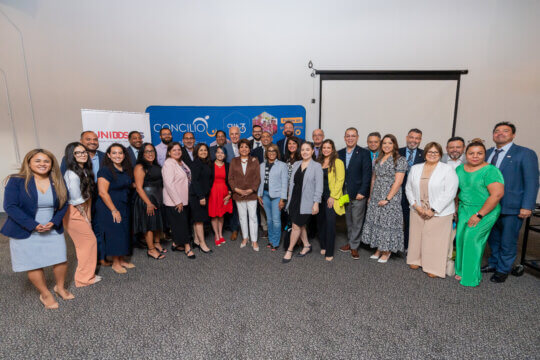
The following representatives from the following organizations participated in the meeting:
- Adonis Banegas, CEO, Concilio
- Emilio Buitrago, Founder and Former President, Casa de Venezuela
- Senator Bob Casey Jr., Pennsylvania
- Rafael Collazo, Director, Political Affairs, UnidosUS
- Debora Carrera, Chief Education Officer, City of Philadelphia
- Jannette Diaz, President and Chief Executive Officer, Congreso
- Will Gonzalez, Executive Director, Ceiba
- Priscilla Jimenez, Board Member, Concilio
- Jose R. Lopez, President, Spanish American Civic Association
- Councilmember Quetcy Lozada, District 7, Pennsylvania
- Janet Murgia, President and CEO, UnidosUS
- Angel Ortiz-Siberon, Vice President of Research and Strategic Initiatives, Esperanza
- Julia Rivera, Chief External Affairs Officer, Congreso
- Joel Berrocal Rivera, Executive Director, The National Puerto Rican Chamber of Commerce
- Pedro Rivera, President, Thaddeus Stevens College of Technology
- Damary Bonilla Rodriguez, Author
- Nilda Ruiz, President and CEO, APM
- Neera Tanden, Director, White House Domestic Policy Council
- Mike Toledo, President and CEO, Centro Hispano
- Christina Vega, Love Shouldn’t Hurt – Philly
- Elizabeth Zamudio, Vice President, Education
—
Read More News from UnidosUS
